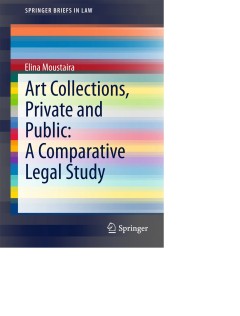Filter by

High-Need Schools Changing the Dialogue
This book covers issues that pertain to high-need schools but the authors challenge the distinctions made in the research and reason that the issues are relevant to all schools. From the rise of accountability in the 1960s to now, high-need schools have been dealing with curriculum, program initiatives, and responding to diverse populations, typically without the resources necessary to implemen…
- Edition
- -
- ISBN/ISSN
- 978-94-6300-705-4
- Collation
- XVI, 134
- Series Title
- -
- Call Number
- 370 HIG

Conceptualising and measuring work identity : South-African perspectives and …
This book provides a systematic overview on issues and challenges related to work identity and identification at work in the?new? South African workplace. It shares results and measures of a work identity research project that was conducted in a variety of modern South African workplaces. It looks at the concept of work identity in the light of a keen and growing interest in why people are beco…
- Edition
- -
- ISBN/ISSN
- 9789401792424
- Collation
- 261 pages
- Series Title
- -
- Call Number
- 301

Concurrent engineering in the 21st century : foundations, developments and ch…
Presenting the gradual evolution of the concept of Concurrent Engineering (CE), and the technical, social methods and tools that have been developed, including the many theoretical and practical challenges that still exist, this book serves to summarize the achievements and current challenges of CE and will give readers a comprehensive picture of CE as researched and practiced in different regi…
- Edition
- -
- ISBN/ISSN
- 9783319137766
- Collation
- -
- Series Title
- -
- Call Number
- 338.5

Confessions of the pricing man : how price affects everything
The worldℓ́ℓs foremost expert on pricing strategy shows how this mysterious process works and how to maximize value through pricing to company and customer. ℗ℓ In this engaging and practical narrative, Hermann Simon leaves nothing out of the pricing cocktail, explaining each ingredient through dozens of stories collected over four decades in the trenches and behind the scenes. A world-…
- Edition
- -
- ISBN/ISSN
- 9783319204000
- Collation
- -
- Series Title
- -
- Call Number
- 338.544

Conflict Resolution in Water Resources and Environmental Management
The latest developments regarding the theory and practice of effectively resolving conflict in water resources and environmental management are presented in this book by respected experts from around the globe. Water conflicts are particularly complex and challenging to solve because water and environmental issues span both the societal realm, in which people and organizations interact, and the…
- Edition
- -
- ISBN/ISSN
- 9783319142159
- Collation
- vii, 291 pages
- Series Title
- -
- Call Number
- 303.6

Conflict and complexity : countering terrorism, insurgency, ethnic and region…
Complexity science affords a number of novel tools for examining terrorism, particularly network analysis and NK-Boolean fitness landscapes as well as other tools drawn from non-linear dynamical systems modeling. This book follows the methodologies of compex adaptive systems research in their application to aaddressing the problems of terrorism, specifically terrorist networks, their structure …
- Edition
- -
- ISBN/ISSN
- 9781493917044
- Collation
- x, 292 pages : illustrations (some color), color maps ; 24 cm.
- Series Title
- -
- Call Number
- 303.625

Heidegger and Development in the Global South
Taking the Heideggerian critical ontology of technology as its base, this volume looks at postcolonial modernization and development in the global south as the worldwide expansion of the western metaphysical understanding of reality. We live today in an increasingly globalizing technological society that Martin Heidegger described in the middle of the last century as ‘the planetary imperialis…
- Edition
- -
- ISBN/ISSN
- 978-81-322-2303-0
- Collation
- XIX, 309
- Series Title
- -
- Call Number
- 300 GEO h

Conflict and Multimodal Communication Social Research and Machine Intelligence
This book explores the use of technology to detect, predict and understand social cues, in order to analyze and prevent conflict. Traditional human sciences approaches are enriched with the latest developments in Social Signal Processing aimed at an automatic understanding of conflict and negotiation. Communication?both verbal and non-verbal, within the context of a conflict?is studied with the…
- Edition
- -
- ISBN/ISSN
- 9783319140810
- Collation
- xxi, 479 pages
- Series Title
- -
- Call Number
- 385

Art and Intercultural Dialogue
How can art act as an intercultural mediator for dialogue? In order to scrutinize this question, relevant theoretical ideas are discussed and artistic intervention projects examined so as to highlight its cultural, political, economic, social, and transformational impacts. This thought-provoking work reveals why art is needed to help multicultural neighbourhoods and societies be sustainable, as…
- Edition
- Ed. 1
- ISBN/ISSN
- 978-94-6300-423-7
- Collation
- -
- Series Title
- Comparative and International Education: A Diversity of Voices
- Call Number
- 370 ART a

Art Collections, Private and Public: A Comparative Legal Study
This book is a comparative legal study of the private and public art collections in various states of the world, covering the most important issues that usually arise and focusing on the differences and the similarities of the national laws in the treatment of those issues.
- Edition
- Ed. 1
- ISBN/ISSN
- 978-3-319-15802-0
- Collation
- IX, 124
- Series Title
- SpringerBriefs in Law
- Call Number
- 341 MOU a
 Computer Science, Information & General Works
Computer Science, Information & General Works  Philosophy & Psychology
Philosophy & Psychology  Religion
Religion  Social Sciences
Social Sciences  Language
Language  Pure Science
Pure Science  Applied Sciences
Applied Sciences  Art & Recreation
Art & Recreation  Literature
Literature  History & Geography
History & Geography